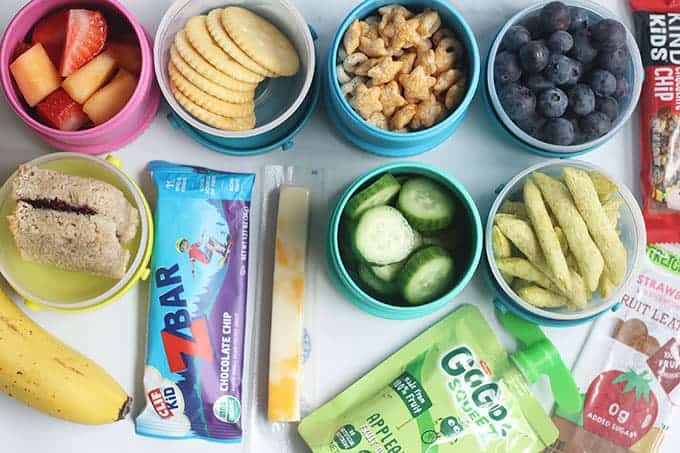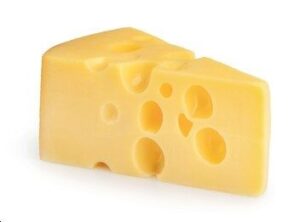Growing children are often hungry between meals. However, snacks for children are not very healthy. They are often packed with refined flour, added sugar, and synthetic ingredients. Mealtime is a great opportunity to steal some extra nutrients from your baby’s diet.Instead of highly processed foods, fill your baby’s stomach with whole foods that will provide energy and nutrition.
Here is a list of snacks ready for kids both healthy and fun.Growing children are often hungry between meals. However, snacks for children are not very healthy. They are often packed with refined flour, added sugar, and synthetic ingredients. Mealtime is a great opportunity to steal some extra nutrients from your baby’s diet.
Instead of highly processed foods, fill your baby’s stomach with whole foods that will provide energy and nutrition.
Here is a list of snacks ready for kids both healthy and fun.
Table of Contents
Yogurt
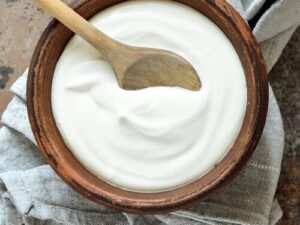
Yogurt is an excellent food for children because it is a good source of protein and calcium. Calcium is very important in the bones of growing children. Some yogurts also contain live bacteria, which benefit the digestive system.
Most yogurt sold to children is high in sugar. Instead, choose an empty, oily yogurt and sugar with fresh fruit or honey. However, be careful not to give honey to infants under 12 months of age, as they are at high risk of becoming infected with the deadly virus called botulism.
Popcorn

You may view popcorn as junk food, but it is a whole nutritious grain. As long as you do not focus on unhealthy packaging, popcorn can be a healthy meal for children. Sprinkle your popcorn in the air, grease it with a little butter, and sprinkle with grated Parmesan cheese on top.
However, be careful when giving popcorn to young children, as it may be dangerous to choke.
An edible crop with succulent branches and peanut butter and raisins
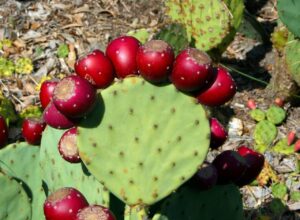
An edible vegetable with succulent branches and buttermilk and dried grapes sometimes called “ants on the trunk” is a delightful way to get your child to eat vegetables. Cut the stem of the succulent plant into three or four pieces, spread the peanut butter inside the succulent edible vegetable, and arrange a few dried grapes on top of the peanut butter. These three foods combined provide a good balance of carbohydrates, proteins, and fats. Just make sure you buy peanut butter without the extra sugar or vegetable oil.
Peanuts
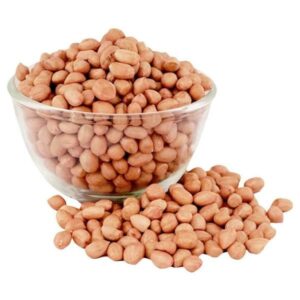
Peanuts are rich in healthy fats, as well as fiber and antioxidants. Dietary fats are important in supporting the growth of children. Doctors used to recommend taking nuts in children because of the risk of allergies, but recent evidence suggests that introducing nuts at an early age reduces this risk. However, nuts can be dangerous to choke, so make sure your child can handle the texture before giving nuts as a snack.
Route mix
As long as your child is not allergic to nuts, trail mix is a healthy snack that children can eat on the go. Many commercial route blends contain chocolate sweets, which are high in sugar, but you can easily make your own at home. For a healthy version, combine nuts, dried fruit, and whole grains.
Chopped pears with ricotta cheese
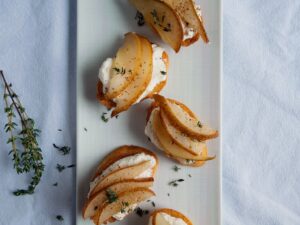
Pears are delicious food and are easy for a young person to eat when cut into pieces. Pears are high in fiber and beneficial plant compounds.
Sprinkle each slice with ricotta cheese to add a delicious source of protein and calcium to your baby’s diet.
Cottage cheese
Cottage cheese is a fresh cheese and cream soft enough for you to eat even for babies.
It is rich in protein and a good source of selenium, vitamin B12, and calcium. Vitamin B12 is essential for the proper growth and development of the brain in children.
You can serve cottage cheese on your own, topped with fresh or dried fruit, or use it as a creamy spread on wheat toast.
Corn
Oatmeal is a healthy breakfast for children but also makes a delicious snack. Oats are high in soluble fiber, which increases the number of beneficial bacteria in the digestive tract, as well as other health benefits. Skip the fragrant packets, with a lot of sugar, and make your oatmeal with whole oatmeal. Add about 1/8 teaspoon of cinnamon and other chopped apples to taste. If you make oatmeal with milk instead of water, it will add more protein and calcium.
A piece of cheese
Cheese is mainly made up of protein and fat and is a good source of calcium. Studies show that eating cheese and other dairy products are linked to better quality whole foods. A high-fat dairy diet has a significant impact on the baby’s nutritional needs of calcium, magnesium, and vitamins A and D.Cheese provides children with high-quality protein, which is essential for proper growth. Protein will also help them feel full during meals. In addition, some studies indicate that children who eat cheese are less likely to develop pores.
Veggie pita in the pocket
Some parents think that it is difficult to get their children to eat vegetables. But if you make them fun, they are more likely to try vegetables. Sprinkle the hummus in a packet of wheat pita and chop the raw vegetables, such as carrots, cucumbers, lettuce, and peppers. Let your child choose a few vegetables and fill the pita. Vegetables are full of important vitamins and minerals, and many children do not eat enough.
Fruit smoothie
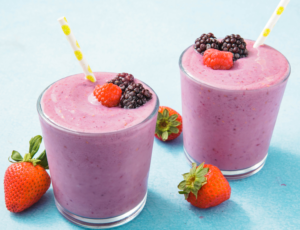
A fruit smoothie is a great way to pack a lot of nutrients into a small meal. You can also add vegetables to a smoothie. With the sweetness of the fruit, your child may not even notice that he is in the middle of it. Avoid fruit juices, which are heavy in sugar, and instead use whole, fresh ingredients. You can try a variety of combinations, but here’s one to get you started:
Berry smoothie
Ingredients for 4 servings:
- 2 cups (60 grams) of fresh spinach
- 2 cups (300 grams) of frozen berries
- 1 cup (240 ml) empty yogurt
- 1 cup (240 ml) whole milk or almond milk
- 1 teaspoon (20 grams) of honey
Add all the ingredients to a blender and mix until smooth.
Boiled eggs
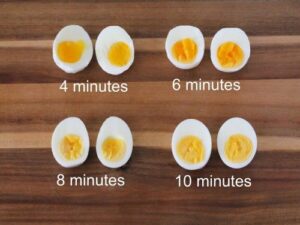
Store hard-boiled eggs in the refrigerator for quick, protein-rich treatment. Eggs are very nutritious and are a great food for children. They provide high-quality protein as well as several vitamins and minerals, including vitamin B12, riboflavin, and selenium.
It also contains lutein and zeaxanthin, two carotenoids that are beneficial for eye health. In addition, they are one of the best dietary sources of choline, a vitamin that is essential for proper brain development.
